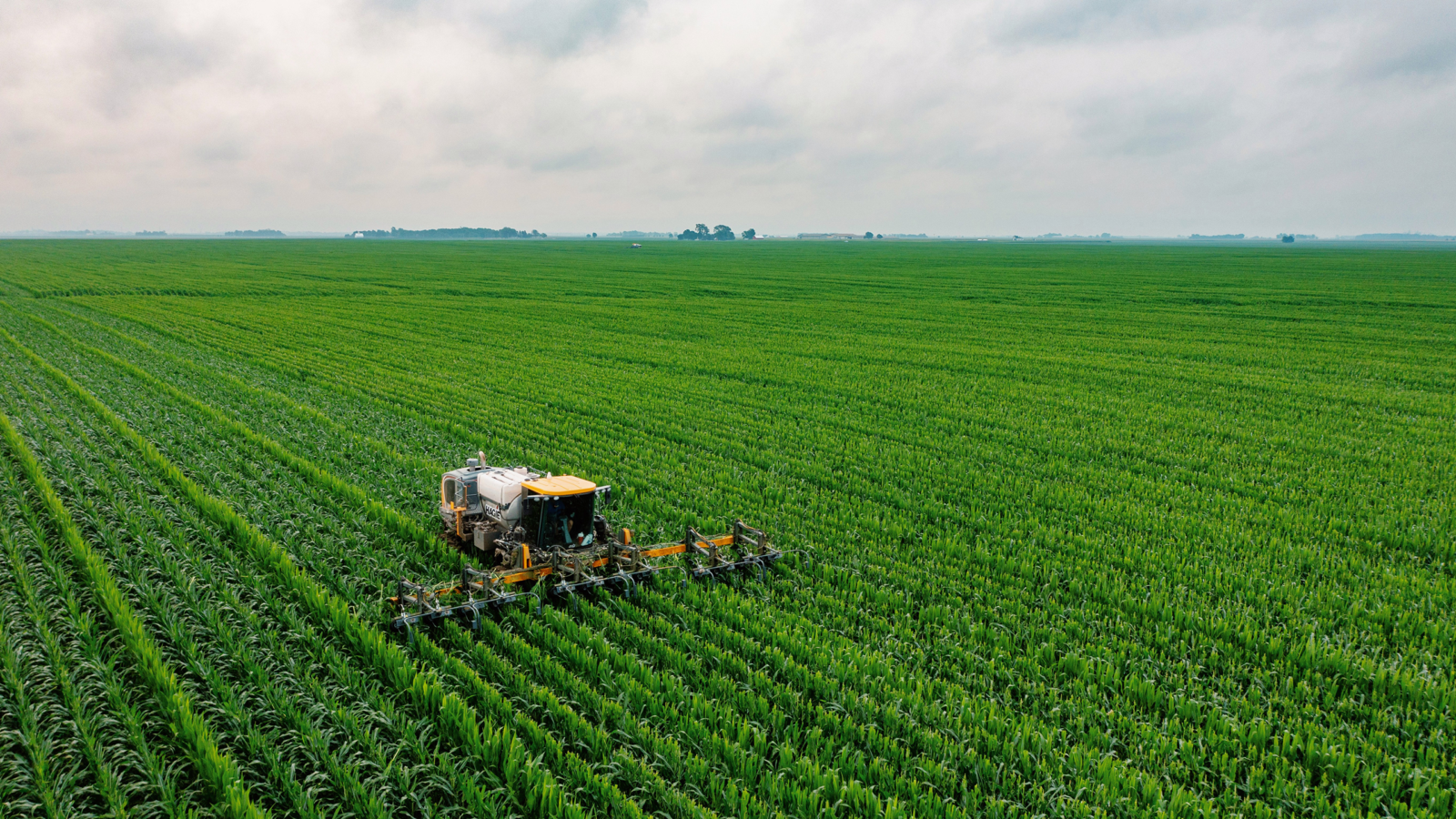Good morning.
We’ve officially entered, as President Donald Trump put it over the weekend in reference to the distinct lack of enthusiasm markets exhibited for his tariff tornado, a “period of transition.” And right on cue, more investors transitioned out of stocks.
A three-week market sell-off only picked up steam on Monday, with tech equities leading the plunge. The tech-heavy Nasdaq Composite Index fell 4%, its worst session since September 2022. The plunge was led by the very same “Magnificent Seven” companies that once spearheaded a furious post-pandemic market rally: Tesla fell 15%, Nvidia 5%, and Alphabet and Meta more than 4%.
The S&P 500, meanwhile, slid 2.7% while the Dow Jones Industrial Average declined 2%, as investors started ruminating about the chances of a certain R-word that no one wants to say out loud right now. Do yourself and your mental health a favor today and don’t check in on your 401(k) or equities portfolios. Or, at least, limit yourself to just a dozen or two quick glances.
China Targets America’s Farms as Trump Tariffs Spur Retaliation

The Trump 2.0 administration may be betting the farm, literally, on an international trade war.
After US policymakers doubled the levy on Chinese imports to 20% last week, Beijing responded on Monday by imposing its own increased tariffs of 15% on key American agricultural goods. It’s just the latest instance of US farmers being ensnared in the now-hot global trade war.
Not-So Green Acres
What do China, Mexico, and Canada have in common, other than being the three largest targets of the new tariff regime? They’re also, unsurprisingly, the three largest foreign markets by value for US farmers, according to the American Farm Bureau Federation, one of the industry’s largest trade and lobbying groups. Which means they’re especially vulnerable to retaliatory tariffs. About 20% of US farm income comes from exports, according to the organization. Mexico, Canada, and China accounted for roughly half that amount, buying $30 billion, $29 billion and $26 billion, respectively, worth of US farm goods last year. And of course, US farmers are also reliant on imports from those countries, now subject to tariffs; 80% of potash, a key fertilizer ingredient, comes from Canada, for example.
All of which make tariffs and trade spats a pestilence for US farmers:
- “There is no domestic market for the amount of corn, soybeans, wheat, and other agricultural products that we now export in significant quantities,” Joe Janzen, an agricultural economist with the University of Illinois, told the AP last week, adding that the trade war has effectively “snuffed out” profitability for the crops.
- By Monday, corn futures contracts saw a massive sell-off. Weekly net corn-contract selling hit its second-highest point ever, behind February 2023, while a sell-off in gross long positions reached a record high.
Already, the agriculture industry has, like the similarly tariff-prone auto industry, pushed for and received some temporary exemptions and protections. By Thursday last week, the Trump administration announced a new executive order easing tariffs on most goods under the USMCA trade agreement struck during Trump’s first term; that executive order also called for lowering the tariff on potash from 25% to 10%.
Tough Crop: Tariffs aren’t the only headache for the US farming industry, either. Farmers are already feeling the sting of a funding freeze to critical programs at the US Department of Agriculture. Meanwhile, BlackRock CEO Larry Fink on Monday warned that mass deportations will have “severe impacts on the agricultural sector,” likely leading to “a little more elevated inflation” before the end of the year.
Is This The Next Billion-Dollar Buyout?

No, it’s not Ring or Nest — meet RYSE, the company redefining smart shade automation.
With $10M+ in revenue and distribution in 127 Best Buy locations, RYSE is rapidly emerging as a top acquisition target in the booming $158B smart home industry, projected to grow 23% annually.
RYSE’s patented retrofit technology allows users to automate their window shades in minutes- controlled via smartphone or voice. With 200% YoY growth, demand is skyrocketing.
Now, RYSE’s public offering is live at just $1.90/share and you can earn up to 25% in bonus shares.
Nvidia and Softbank-Backed Self-Driving Startup Races Toward Market
Wayve is ready to make waves.
The London-based AI autonomous vehicle software startup — which counts Softbank, Nvidia, Uber, and Microsoft among its backers — said Monday that its AI technology learned how to drive on American roads within just a few weeks. A commercial rollout that will see it compete with BYD and Tesla is likely not far off.
Learning the Ropes
What makes Wayve stand out is that its autonomous vehicle software is designed to learn to drive while driving, sort of like humans do. That is to say it doesn’t rely on thorough maps or pre-programmed rules to navigate like some rival AI models. Instead, it is trained on hours of driving data, from which it learns local traffic signs and rules and how to react accordingly on its own — anyone from a neighbouring state can tell you that’s already better than most human Massachusetts drivers.
The company gave up on developing autonomous vehicles years ago in favor of developing technology to sell to auto manufacturers. That allows its products to be built into different cars and eliminates heavy overhead costs. Last year, investors led by Softbank poured in to the tune of $1 billion. On Monday, the company announced a training breakthrough:
- Wayve published data that suggests its AI — which has been able to adjust to different cities and vehicle platforms in the UK, where it’s been running tests since 2018 — adapted faster and more cheaply to US roads, with just a little bit of “additional US-specific training data.” The company started training in California in October and in Germany earlier this month.
- “New results show that with just 500 hours worth of incremental US-specific data collected over eight weeks, Wayve’s AI successfully adapted to US road infrastructure, signage, traffic laws, and driving behaviors, approaching UK-equivalent performance in urban and highway driving,” the company said in a statement. Of incredibly important and obvious note, it learned not to drive on the left side of the road, as one does in Britain.
In addition to selling its technology to carmakers, Wayve struck a partnership with Uber last year to explore the rollout of fully autonomous vehicles on the ride-hailing service’s app. Among the vehicles it has tested, according to its website, are the Jaguar I-PACE electric SUV, the Maxus e9 van and the Ford Mustang Mach-E.
The Competition: Wayve promises to be disruptive in two interesting ways. Selling its self-driving technology to legacy carmakers means those carmakers could immediately compete with both Tesla and China’s BYD, the two global leaders in developing their own autonomous vehicles. And its Uber partnership could eventually lock horns for market share with Alphabet’s Waymo, which also partnered with Uber, in this case to offer driverless rides in Austin, Texas. Waymo is also scheduled to launch its service in Atlanta, where Lyft and May Mobility have a similar project in the works, this year. Tesla, meanwhile, says its own robotaxis are coming in 2025.
Blackstone Gets Green Light for New Private Credit Fund, Raises $8 Billion for Real Estate Debt Fund
Blackstone is having all the fun(ds).
On Monday, the alternative investment giant got the green light from the Securities and Exchange Commission to roll out a new private credit fund, the latest effort to give retail traders more access to a sector dominated by institutional investors. It came three days after the firm said it raised $8 billion in its latest real estate debt fund to capitalize on a property market rebound.
Fun(ds) With Intervals
Private credit is a $2 trillion global market that remains mostly in the hands of big, institutional investors. It exploded in the shadow of the 2008 recession, after humbled banks retreated from making risky loans, creating a vacuum for alternative lenders to step in.
Blackstone’s new Private Multi-Asset Credit and Income Fund — which will be active in North America, Europe and Australia — is one of several efforts aimed at cracking the private credit door open to retail investors as a way of easing a tough fundraising environment. Scheduled to be available for purchase in the second quarter, it is a so-called interval fund, an increasingly popular vehicle to draw individuals into the private credit market:
- Interval funds are required to offer to repurchase their shares from holders only periodically, making them semi-liquid in nature. A record 43 registered last year, and interval funds oversaw $85 billion in assets as of late 2024, up from roughly $25 billion in 2020.
- Blackstone said its new fund, which will be traded under the ticker BMACX, “will invest across private corporate credit, asset-based and real estate credit, structured credit and liquid credit.” That’s not dissimilar from plans at J.P. Morgan Asset Management, which last month filed with the SEC to launch its first interval fund, with a focus on private credit and plans to “invest in an actively managed portfolio of credit investments, including but not limited to loans, bonds, other credit instruments.”
Property Matters: Last week, Blackstone closed on a record-tying $8 billion commercial real-estate debt fund after two years of fundraising, The Wall Street Journal said. It’s another case where the firm, which beat expectations last week when it announced $12.7 billion in revenue, up 65% year-over-year, has capitalized on the retreat of banks in the wake of the 2008 crisis. Traditional banks became more cautious about real estate deals, allowing non-bank lenders to expand their role in financing, especially as higher interest rates have made refinancing challenging for commercial property owners.
Extra Upside
- Temperature Check: SCOTUS rejects bid to block states from suing major oil firms over their role in the climate crisis.
- Lights Out: Ontario slaps 25% surcharge on electricity exports to 1.5 million US homes and businesses.
- Want To Get Even Smarter About Stocks? Join 200,000 investors who get Opening Bell Daily in their inbox. It’s packed with markets and macro analysis you won’t find anywhere else. Subscribe for free.*
* Partner

